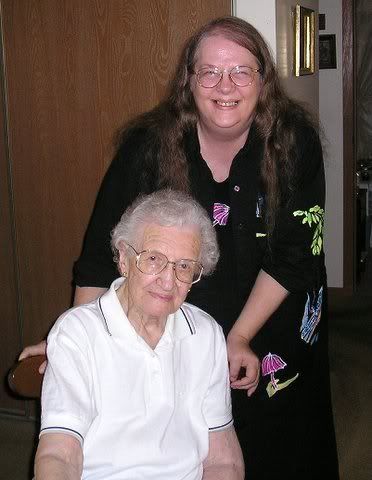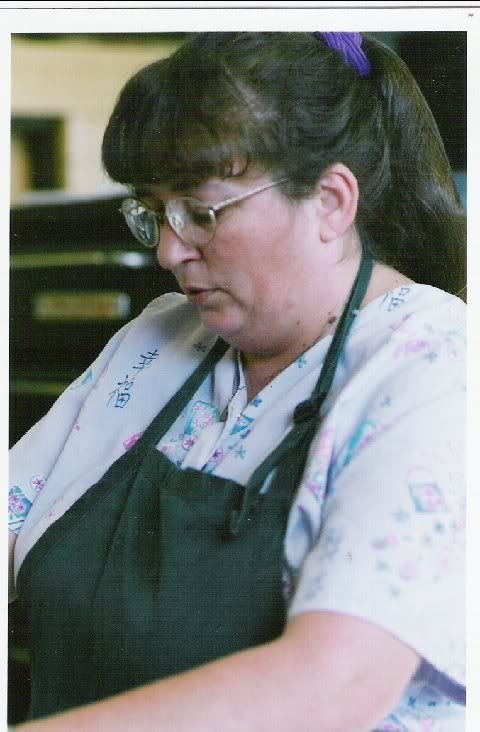Did Anyone see V?

Good morning. It’s just us. Looking frightful. I’m pretty sure God never intended we see someone else while our hair is still wet! BUT, the case is proven, yes we can remember to get in the shower. Nice early start too. It is now 4:30 am and we’re feeling much better cleanwise. What is the word? AHA! Invigorated! That’s us.
We’ve just gotten our first cup of coffee and the ice water is still cold. The temp’s nice and theirs plenty of smokes. Figure we’re all set for the day. Listening to the sounds of morning birds for which we give our early appreciation. Kitties are still lounging in the living room after their breakfast at different ends of the comfy couch. We’re feeling a little on edge just because we know there is a lot to do today. Those papers aren’t going to write themselves. But, for a little bit, we are still allowed a little break.
Hmm, anything to talk about? AHA! There’s the matter of the last Dr. M. visit. Let’s see if we can do that. First thing we remember is that NOBODY cried!!! I think this is the first time in 3 months time. YAYYYY! Progress! Shoot we need the braces again. Anyway, not to let that get us down. It was a good Dr. M. visit. Mostly it was the older parts out. We talked about a variety of things including our big project down at work, the new intern, the progress being made at school and the final paper, and our general excitement over its topics, and the time “knowledge.” He helped us understand a few concepts. Since then, we’ve talked a little to V and our friend as well. Everybody contributes a few thoughts, but none go so fast as that covered by Sternberg in our text book. Of course, that would be only natural. BUT, it was nice to consider the ideas outside the courseroom.
One of the things remembered best about Dr. M. was that even though we did not show him the actual work, he seemed to understand. Hmm, maybe I said this before, but just in case we didn’t he said the kind of thing we were working on with the Performance Analysis was the kind of thing people wrote papers about. He said there are always people interested in the kind of work showing new models of communicating the needs of others. Or, SOMEthing like that. The most important part being as this WAS important stuff and it was stuff others might find useful. YAYYYYY! It got us to the thinking part that this could be the basis for our Master’s paper. Be pretty cool I’d call it something like “Program Effects on Learner’s Performance.” Take a lot more work though … we’d have to tie it to whatever is being done in the field right now, though we’re pretty sure not many are doing what’s being done. When he said that positive and negative is actually “valance,” we got the idea though that that concept has been checked out in probably many ways. That’s down the line though.
The other part of the visit might have come toward the end. Dr. M. is going away again, this time on vacation to London. Most impressionable is that he is sneaking in a little business in visiting colleagues at Oxford. We teased him for playing with the big guys. I think he could appreciate that statement, because I think he knows it! I’m starting to think we wrote about this before though, because it seems familiar, though it might have been because we’ve already talked this over with V. Along with the part that we’re encouraging Dr. M. that he should be doing more writing. He’s hot on that topic already even without our concern. He said he has a goal to write a couple of papers this year one on education and we’re pretty sure the other is on schizophrenia. I think he specializes in working with the onset of the disorder. Leads me to believe that something important must happen at that time. We’ll look forward to his work, pretty sure he’d let us read it. Of course, if he ever decided to read on multiplicity, we’d be all over that, but I don’t think its going to happen any time in the near future.
Whoops … time for 5 am kitty pet. Hmm, where’s V. Maybe that’s what Missy is talking about … Uh huh, uh huh, LATE~! Hmm, let’s make that another 15 minutes of kitty petting.

She can be pretty insisting … and on the end of every pass-by, we get whacked with her tail. I think she’s marking me as HER territory! But she’s calmer now and laying right in back of us. Not sure how we would exist without them. They are one of our most loving aspects of life. They care about us and we care about them IF, of course, we are paying attention. Sometimes we’re caught up in the work and brush them aside, especially Missy who is more emotionally involved by saying come back later, later … we’re BUSY! She’s not a woman to be put-off!
Wow … minutes, just minutes go by and already we noticed that day has broke …


Yes, ladies and gentlemen, you saw it right here, FIRST! Hehehe Ok, ok … now we’re in a silly place. And, STILL no V! We’re pretty sure this has something to do with a late night ball game, HMMMM?? Maybe a little fancy cooking? AHA!
Oh sure … now he signs on … after he’s gallivanted the night away! HMPF!

Ok … ok … we only gave him a MEDIUM hard time!
Seems someones pushing someone to do something you can probably figure out yourself!
Ok, ok … but, let it be known, I didn’t go down easy! Dumb ol Jennifer and Don … if they’re expecting a baby, they should figure out language stimulation themselves! HMPF!
 Hmpf Face
Hmpf FacePart I: Thoroughly compare and contrast the speech-is-ordinary and speech-is-special views, particularly in reference to categorical perception and phonemic restoration. Be sure to clearly define and describe categorical perception and phonemic restoration in your answer.
Part II: Jennifer and Don are expecting a baby. They are eager to provide the best language stimulation for the baby. Drawing from research on language acquisition, what practical advice would you give this couple regarding appropriate language stimulation for infants? What advice would you give this couple regarding teaching children appropriate communication of emotions?
PAPER!
In respect to auditory perception, speech perception and the auditory perception of other sounds are about the same process in the ordinary view where speech perception in the view of special would signify this phenomenon to be uniquely human (Sternberg, 2003, pp. 294-295). A view of “ordinary” would suggest “speech is just a relatively complex signal that is not treated qualitatively differently from other signals” and a view of “special” would suggest that because speech is a language it is a special ability (2003, p. 296). Which point of view you accept might indicate your tendency to favor signals as a regular acoustics or special phonetic messages (2003, p. 296). I might hear a morning bird whistling, but because I don’t know the meaning of the particular sound it is perceived most likely and maintained acoustically. I have a tendency to believe that human speech is more tied to messages that are more direct than just sound.
Because of the various languages, we know that many sounds can indicate, for example the word water, but the relevant point is when I sense and perceive the phonemes “wa-ter); I receive and identify a communicative message, such as my tub is over-flowing. Perhaps this is the greatest difficulty of young parents with newborn children. They most likely could tolerate being up all night, if the infant was more specific about what his sounds were communicating. Then all issues could be resolved and everyone would be happy. The parent has to perceive the message without being startled by the sound. In the first view the parent might be more apt to be affected by the acoustic sound of the infant’s distress more than by any specific consonant vowel combination. The second view might be considered enacted in that although not language specific, the “wa” phoneme would most likely represent the speech sound meaning help was needed.
It would be difficult to assume either view to be incorrect. Sound in general, it would seem that is not understood would lead to more confusion and sense of crisis, or perhaps awe if the sound were a roaring water fall. Language picked up would lead to more a normalization of the phenomena – general knowledge and comprehension. If we heard our cat similarly cry we might understand at a fundamental level it is also in distress, which allows us to empathize or relate, or throw a shoe if we didn’t want to bother. It wouldn’t be critical to understand the phonemes meaning of “ME” compared to an “OW.” If a child, however, said the words “Me” and “Ow” most likely we’d be concerned with both phonemes “me” and ow” meaning perhaps a “boo-boo” we needed to help the child fix. The ordinary view works at a level of addressing a distress signal, the special view works at a level of understand the child is communicating specifically “he has been hurt.”
Sternberg (2003) discusses that with the ordinary view a template or prototype is matched after the sound has been analyzed at a sensory level. In our previous example of the infant and cat, the match might have been distress. In “phonetic refinement theory,” we would first cue in on the distress – which would tell us to “MOVE”, and then we would advance to higher-level of neural processing - cued in from past experience handling crying of either infant or animal. Because in either case (infant or cat) there were no words being expressed, we would need to infer relevancy of pitch or urgency. Like with words, most likely we have something in our memory that will suggest consciously what needs to happen next, unless we were being otherwise directed from an external source. We might pick up the infant and rock him assuredly, reach for a bottle, pick up a how-to book, turn up the TV, or call our mother. The idea is to refine or embody being an active care-taker as a reaction of the sound communication of crying. And, as the perceptual principles of feature-detection go, as a grandmother no longer accustomed to crying or caretaking, I might rock an infant with a sound of a gentle cry, where I am pretty sure the detection of the “loud” feature would send me looking for the child’s nearest parent who might feel less helpless or distressed than I have now become in identifying with the infant’s crises state.
Phonetic restoration is the phenomenon of auditory closure which includes symmetry, proximity, and similarity of events (Sternberg, 2003). My first thought in the above example is that I want to restore the infant’s sound to its original cooing and babbling. We’ve all been emotionally elevated, now let’s come back down to calm. Sternberg states more directly though that phonetic restoration is the restoring of “the missing phoneme that best suits the context of the sentence.” This might mean if the infant was babbling, he might complete one “ba” with another - “ba-ba.” Or, in the instant of an adult caretaker, he might not have heard more than the phoneme, “coo,” without completing the thought, “no it will spoil your dinner.”
Whoops … drive by friend … he says here - relax … I got five minutes Hehehe

He may have missed the point …
Whoops he’s flitter-fluttered off …
Back to paper … hehehe umm … go back for a second and look again at my HMPF! Ok, ok … that’s enough of that … ANYWAY … we were saying …
Eh, that paragraph is finished … better write about special speech perception and categorical perception … unhappy face!
Ok, more coffee? *Sigh* And, a fruit cup? Ahh, your pushing … *most winning smile* Oh dear … I hate that look …

She always wins. I shouldn’t have gone with the cookie example.
In looking now at the view of special speech perception, and specifically categorical perception, we find this model cannot be used with the above example of crying. Categorical perception only applies to speech sounds, not non speech sounds (Sternberg, 2003). The emphasis made on categorical perception was that “although the speech sounds we actually hear comprise a continuum of variation in sound waves, we perceive discontinuous categories of speech sounds” (2003). We would hear the category of da differently than the category of ga and our perceptions of these are constant. However, the researchers found that while it was relatively easy to distinguish da from ga, it was not as easy to distinguish da from da “dada,” which lead them to believe speech was a specialized process in what seems to be the special human trick of finding the lost categorical enunciation.
Fowler & Rosenblum (1990) considered Liberman’s proposal of speech perception being “subserved by a “module”” that was special or distinct. They used for evidence of this claim that in comparing objects of speech and non-speech perception the speech signal did “correspond to the vocal-tract activity” where the non-speech item did not (1990). They also entered into the discussion the support of specialized speech perception through the phenomenon of duplex perception where both speech and nonspeech could be heard at the same time, though speech could not be a percept of the acoustic system, (1990). Lastly, they suggested that according to Whalen and Liberman (1987 as cited in Fowler & Rosenblume, 1990), in a duplex perception the “speech module is preemptive: It gets initial access to acoustic input, and the general auditory system gets its leftovers.” Trout (2001) would agree also that speech “is special” because it had been shown that the listener has to make phonetic decisions and because researchers could document different areas of the brain for the processing or activation of speech vs. nonspeech. Trout supports Fowler & Rosenblum’s view and the each complains heavily of the research work done by Lenneberg in 1964 (as cited in Trout, 2001) where Trout purports to have put have extinguished speech perception as special from his work comparing sparrows, chinchillas, quails, etc.) as irrelevant and off-task (2001).
References
Fowler, C. A. & Rosenblum, L. D. (1990, November) Duplex perception: A comparison of monosyllables and slamming doors [Electronic ed.]. American Psychological Association, 16(4), 742-754.
Sternberg, R. J. (2003). Cognitive psychology (3rd ed.). NY: Wadsworth/Thomson Learning.
Trout, J. D. (2001, July)/ The biological basis of speech: What to infer from talking to the animals [Electronic ed.]. Psychological Review, 108(3), 523-549.
The practical advice I would give to the couple of Jennifer and Don regarding appropriate language stimulation for their infant would be:
1) To discover the infant’s innate ability and guide it
2) To reinforce learning concepts as meaningful including coos and babbling
3) To be vocally responsive toward the infant
4) To allow the infant freedom to express his or her free motor movements (in sync with the rhythm of speech
5) To reinforce the infant’s utterance of sounds
6) To not tease the infant/child for making “silly” speech errors (still remember my mother’s laughter over my not picking up the proper word for perculator – percultator)
7) To assist the infant in categorization tasks such as in reading books on different animals, sounds, colors, items
8) To think about how we think (my youngest son said at 18 months, “I have a [s]noopy min[d}”
9) To support the child in a playgroup where speech is supported in peer interactions
10) To consider the relevance of cultural diversity in raising the child
The advice I would give the young couple in teaching their children appropriate communication of emotions would be:
1) To appreciate the child’s abilities to imitate and model good and bad behaviors of parents
2) To explain things to them calmly and even-temporally in a way they can understand
3) To not cause them alarm by shrieking at them, being impulsive, or catastrophizing
4) To explain to them what things mean, no matter how often they ask
5) To appreciate their thoughts and imaginations
6) To not overcorrect
7) To assist them in managing their emotions – such as talking and accepting/sharing emotions safely without parental guilt or disdain
8) To encourage questions, exploration, and observation
9) To help them understand listening and assisting others
10) To try your best not to confuse them
End of first Paper…
Ok ok. Lunch has been had, d_()&#% forgot morning medicine … PSWHOOO Ok, OK took that … I’m sorry I just forgot. It’s about 1:45 now. Maybe better wait on the night time one until 6. Shoot. I really do try to take it right. Hmm, I suppose nothing to be done about it now. Just have to wait out the effects. But, if I’m goofy in a bit … let’s come straight back to here, k?
Anyway all that’s done, and we made a couple of comments. Just don’t have the time to read everyone’s. I have to get started on the next paper … Hmm, 2 pm start. Probably won’t be done until 8 or 9 tonight … Shoot. Eh … let’s not worry about that either … What else had we really planned? The last assignment there had been 70 messages and this one says only 32 messages. Looks like we’re caught up to the back half the class. Seems like about half have gotten done their journal too, which is supposed to be the last of the assignments. Lab there is no telling. Ok, let’s face forward … what do we have to do next?
u06d3 Relativity and Universals :
Compare and contrast linguistic relativity and linguistic universals, being sure to provide evidence that supports the existence of each.
What has neuropsychological research taught us about the relationship between particular areas of the brain and particular linguistic functions?
What other methods have shed additional light on this relationship?
Ok … here goes …Ack! 324-329 Let’s first read our notes, then start
Paper…
D_)(*^( feeling kinda tired and dizzy Think it would be ok if we just laid down a little … my tummy doesn’t feel so good either An I think my head hurts. A Little break?? Just an hour, K? I promise … I’ll get up. Scouts honor! *Sigh* So go already …

Hmm, what do you think? Do I look rested? I know I know … no sense of time. It’s now 4:30 pm.

For the record, I want to thank both of you V and Deb for well wishes on the day. I refuse to go any further with it than that. I think thing like this are very taxing on one’s emotions. Hmm, I wonder if it wouldn’t be a good time to call my Grandmother. Pretty sure her phone is pretty busy today, but I’d rather to contribute to her day than take from it. Hold on.

Umm, thought I would call the mother person after talking to my Grandmother. It feels like it was the right thing to do, but always hard on the system. Same as it has always been. She talks on an on and we say, “uh-huh, Uh-huh, ok, yah, hmm.”
ANYWAY….
Talking to my Grandmother was a good idea. Turns out she’s been in the hospital for four days while we were being sick. She had problems with a high heart rate, which isn’t normal for her and she had fluid in the lungs. I was grateful she had the connection to my Uncle. He told her the morning she went in that she either call 911, or he was going to do so from Vegas. She said she was very weak. I was glad that she was on the better side of things now. But, I’m being cautious even though she says there is nothing to worry about, because when I commented on her voice sounding good, she says that’s what people tell her, which leads me to believe it might not be true. Today though was a good day for her, she said she couldn’t get too far from the phone, because so many had called. I was glad I did. With both of them I had said each time that I’d been sick, but no one asks what the problem is and we don’t volunteer it on our own. My Grandmother’s call was shorter today, but she made it clear that I take the time I need to in taking care of myself and call her when I can. That helped a lot. I have pretty strong feelings of not calling her when we’re down. The call really helped though. One of my cousins went in to make sure things were ok at her apartment and the office had gone to help her receive the ambulance people. They would have made sure there was someone to stay with her and the woman helped her close up the place which had been too much for her, but she had trouble letting it go. And, then one of my mother’s friends who she is very familiar with (a retired supervisory nurse from surgery) met her at the hospital and made sure she was well taken care of and that things were explained properly to her. She said, she had a very nice doctor this time, who encouraged her to stay as long as she would like. But, she is not one who wants to sit around being sick. She says things are always better when you know where they are at. I felt much better in that when she needed help, she made contact with her son. I was pretty sure, he wouldn’t take any chances with her. Trying to let the mother thoughts go here. They wouldn’t have been kind.
After we had listened to my mother … we treated ourselves to a short conversation with Deb. She gets our hat’s off seal of approval! Heheheh The first picture is talking with our Grandma the second talking with Deb Deb shared some Sunday school stories, which made me think of the day as really being special. Our thanks to you Deb.


Well, it’s already 7 pm … we’re eating dinner now and am thinking we’ll take the evening medicine soon. Maybe instead of worrying over the paper tonight, we’ll call it an early day and try to get up earlier in the morning to write.
There all that is done! I think what we are going to do is write our friend a special note, then maybe report in to Dr. M before going to bed. Yes, that’s a nice way to do it.
Be right over there!
















